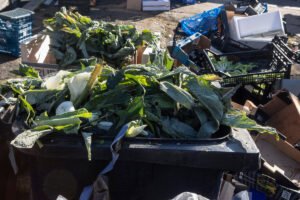Wednesday, 18 February 2026
Bioweg and Ginkgo Bioworks to combat microplastic pollution with bio-based materials
Green alternatives to synthetic polymers being developed Bioweg, an innovative ‘Bio-innovation to Business’ German producer of highly functional and customizable bio-based materials, has partnered with Ginkgo Bioworks to announce a…

Green alternatives to synthetic polymers being developed
Bioweg, an innovative ‘Bio-innovation to Business’ German producer of highly functional and customizable bio-based materials, has partnered with Ginkgo Bioworks to announce a collaboration for optimising the production of bacterial cellulose and produce novel variants with improved performance to serve a variety of end markets. Biomaterials could prove to the most biodegradable, carbon-negative plastic alternative that could put the world on a more sustainable track.
Bioweg was founded in Germany in 2019 by Dr Prateek Mahalwar and Srinivas Karuturi, two Indian-origin founders from Delhi and Bengaluru.
The problem of microplastics is prevalent all over the world and also India is not unaffected. A recent study by the National Centre for Coastal Research (NCCR) has found that microplastic pollution is very high on the east coast about 10 km into the open sea, with up to 308 particles per kg of sediment. It is therefore not surprising that an average person could be ingesting about 5 grams of plastic each week through the consumption of common foods and beverages, according to a study by the University of Newcastle.
These microplastics are non-biodegradable and sometimes carry toxic chemicals on top of them. Regulatory agencies and communities around the world have addressed microplastics contamination through significant regulations.
Bioweg’s current products based on biodegradable bacterial cellulose have already been tested and implemented by companies as an effective substitute for widely used synthetic polymers such as acrylates, polyethylene, and polystyrene.
“Bioweg is addressing a significant need in the marketplace to develop and produce a new generation of clean alternatives to synthetic polymers,” said Ena Cratsenburg, Chief Business Officer at Ginkgo Bioworks.
Bioweg aims to possibly establish a production facility for biologic microplastic alternatives in India in the near future, which could serve as a base for supplying the Southeast Asian market.
Image credit- shutterstock
Technology
Carlsberg Launches AI-Crafted Lunar New Year Packaging
Feb 17, 2026 | Beverages
FAO Experts Assess Risk of Antimicrobial Resistance Spreading via Food Loss and Waste
Feb 17, 2026 | Sustainability
Food Testing
Redefining Trust in Organic Foods through Independent Testing
Feb 13, 2026 | Food Safety and Testing
AFNOR International Eyes Global Food Safety Growth with HACCP Group Takeover
Feb 04, 2026 | Australia
More Popular
Hormel Foods Announces Agreement to Sell Whole-Bird Turkey Business to Life-Science Innovations
Feb 18, 2026 | Company News
Kodiak Expands Frozen Lineup with No Sugar Added Homestyle Power Waffles
Feb 18, 2026 | Company News






